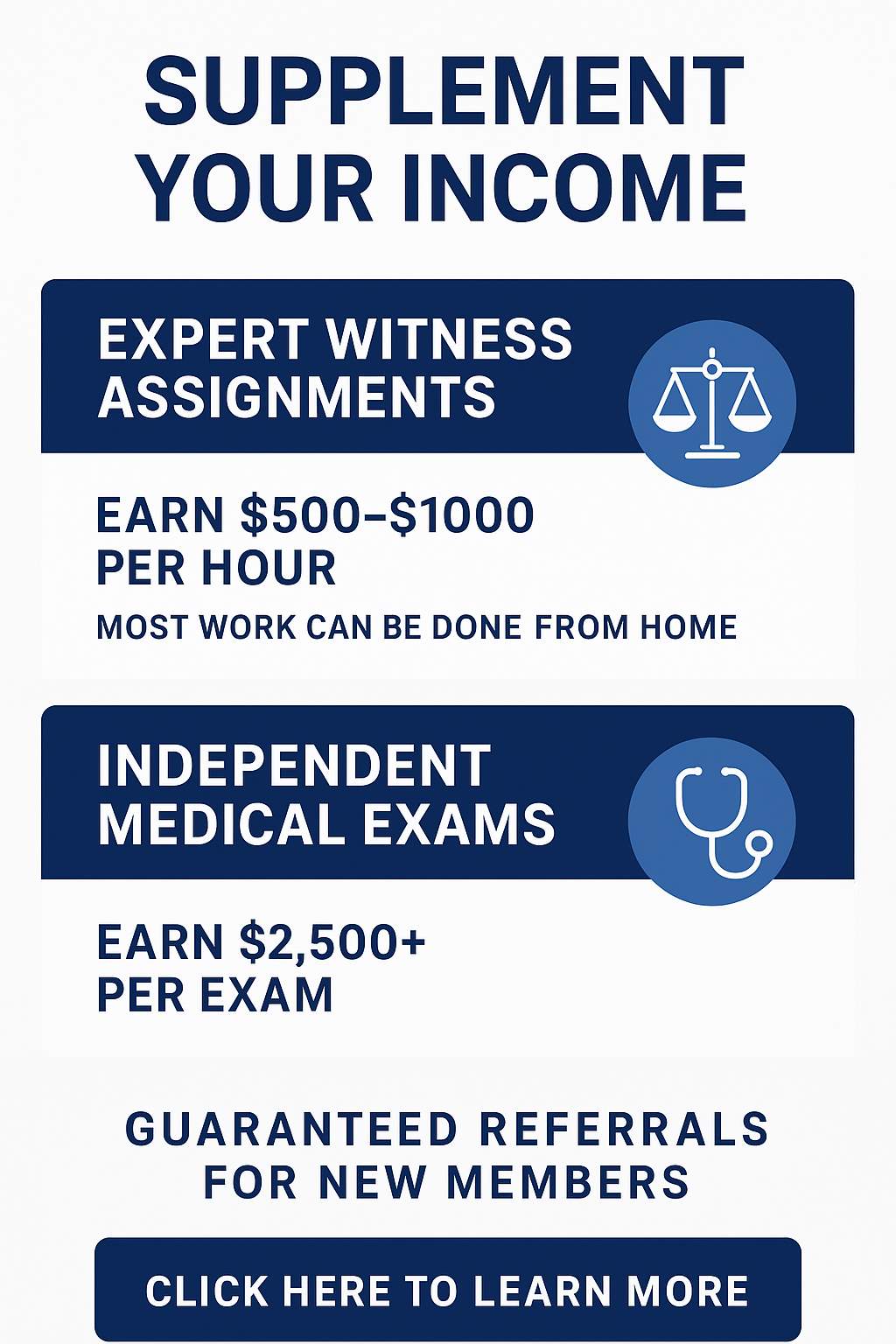Non-Clinical Pay for Physicians: How Much Money Do Doctors Working Non-Clinically Earn?
Non-Clinical Pay for Physicians: Introduction
A common question I am asked is how much money will a physician lose by switching to a non-clinical career? The good news is that, for many physicians, they will likely be making more non-clinical pay than they earned as a clinician, especially over time. So, the real question to ask should be how much money is the physician losing by staying in clinical medicine?
Understanding Non-Clinical Pay for Physicians & How it Compares to Clinical Compensation
When thinking about the financial consequences of a transition to a non-clinical career one should start by considering how much money you are currently making in clinical medicine. The more money you are making in practice, the harder it will be to replace this income in a non-clinical career – especially initially. So, if you are a neurosurgeon making seven figures in practice, you will have a harder time replacing your clinical income than a primary care physician earning $200,000 or so per year.
It’s also important to understand how entry level non-clinical physicians in popular industries such as pharma and insurance are typically compensated. Non-clinical compensation will typically consist of a base salary (typically $175,000-$250,000+) as well as a yearly bonus which can be 25-50% of your base salary. So often times, when the bonus is factored in, the non-clinical pay for a physician is going to be higher than clinical pay, even at the start.
When thinking about non-clinical pay for physicians you also have to consider room for growth. Medicine is a highly regulated industry. How much a physician can earn is effectively set by the government and insurance companies. It’s not a free labor market. Clinical physicians have to work harder and harder to make additional money (see more patients, do more procedures, etc.).
In the non-clinical world, it is much more of a free market. Non-clinical pay for physicians is more likely to correlate to the value the physician brings to the organization. As your value in a non-clinical role grows further and further, you can earn more and more money, without working any extra hours.
Even higher paying clinical specialties have the ability, over time, to meet or exceed their clinical income. What is required for this to happen is that the physicians take their new non-clinical jobs seriously, prove themselves and earn promotions and additional compensation. So don’t think that if you switch to a non-clinical job and have to take an initial pay cut that such a pay cut is going to be permanent. There is often a lot of room for non-clinical pay growth as your career, talents and contributions progress.
When comparing non-clinical pay for physicians with clinical pay, you also have to consider lifestyle and hours worked. Per hour you may be making significantly more in the non-clinical world. Non-clinical jobs for physicians typically involve far fewer overall hours. In addition, the hours in a non-clinical career are typically regular – meaning no nights, weekends, or call. So a physician in a non-clinical role is likely to be putting in significantly fewer hours and those hours will all pretty much be during regular working times.
Finally, consider work setting. Many common non-clinical jobs for physicians in popular industries such as pharma and insurance are work from home. You’re going to save a lot of time and expenses for not having to commute and there is a significant value to the flexibility and convenience of working from home as well.
Non-Clinical Pay for Physicians: Conclusion
You can make a healthy living in a non-clinical career. Although your mileage may vary, physicians in the lower earning primary care specialties will likely see an immediate pay raise when switching into common non-clinical fields such as insurance and industry. You will also probably work far fewer hours, have a much better lifestyle, and won’t have to do things for free like answering call in the middle of the night. Non-clinical jobs for physicians typically have more long-term income growth potential over time than clinical positions have. Best of all, many of them are well suited to work from home.
We have had the pleasure of having many hundreds of non-clinical physicians serve on the faculty of our annual Non-Clinical Careers for Physicians Conference. These faculty members are all physicians who have successfully transitioned to non-clinical positions. To a person, their only regret has been that they wished they had transitioned sooner.
The finances of a non-clinical career transition often work themselves out immediately or over the longer term. Often times, physicians who take their new non-clinical careers seriously end up doing far better financially by transitioning to a non-clinical career. With a successful non-clinical career transition, you will hopefully end up working less and making more.
James J. Mangraviti, Jr. is the co-founder of SEAK, Inc.’s annual Non-Clinical Careers for Physicians Conference, held each year in Chicago. SEAK’s Non-Clinical Careers for Physicians Conference features a faculty of dozens of physicians who have experience in non-clinical and alternative careers. Many of our faculty are SEAK alumni. SEAK’s Non-Clinical Careers for Physicians conference also includes free 1-1 peer mentoring, the opportunity to interview with employers and recruiters, and a robust networking experience. Jim can be reached at 508-457-1111 or jim@seak.com.
Job Postings: 500+ Links to Non-Clinical Jobs
7 Proven Ways to Supplement Your Clinical Income


